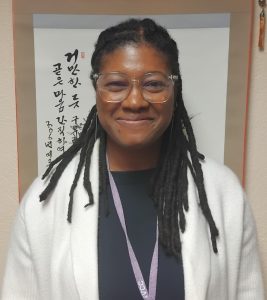Donna Sheridan: The ‘Dancing Queen’ of Sexual Fluidity
November 29, 2018
With three different performances scheduled in the Illinois Valley within one year and a sequel out in theatres summer 2018, “Mamma Mia” may be surmised as one of the most popular tickets this season. But what draws the hoards? What makes this show such a crowd-pleaser?
Obviously the oddity of a score comprised entirely of ABBA numbers draws in enough of an audience to fill seats, but “Mamma Mia” would be nothing without its expertly written relationships.
Main characters Donna and Sophie Sheridan’s mother-daughter relationship and the friendship of the three Dynamos—Donna and her bandmates Rosie and Tanya—are both perfect examples of the strength of female bonds.
And with ABBA’s roots in the sexual revolution, the musical’s songs are charged with female liberation as in Donna’s “The Winner Takes It All” and sexual tension as in Sophie’s bachelorette party’s “Gimme! Gimme! Gimme! (A Man After Midnight).”
And although not technically Broadway, the musical’s sequel, “Mamma Mia: Here We Go Again,” displays this same energy with a new type of representation within the song “When I Kissed the Teacher” that local thespian Bailey Banks sees as making subtle leaps for sexually fluid audiences.
She says, “The teacher is a female in the movie, and Donna’s words and actions reflect her coming onto the teacher aforementioned. In the original ABBA song, the girls were singing male pronouns, but for the movie, that changed.
“While Donna fell hard for Sam, there is no restriction to where her affections could lie. All of this said, the directors did not make Donna’s sexuality a major plot point in the film like many other LGBT+ films are and have been. They simply let her sexuality be a part of her in the same way her hair color, ethnicity, gender identity, and fun-loving spirit are a part of her.”
The same may or may not be said for Harry, one of the three men who were in love with Donna. In the Broadway stage performance, he is openly gay, but in the movie sequel, audiences find in his backstory that he was quite taken with young Donna.
However, IVCC stage director Don Grant Zellmer sees this as representation of society’s lack of exposure to the gay community during the sequel’s setting, the 1970s. He explains, “We’re looking at a time when it
wasn’t okay, exactly, to be gay. A lot of people experimented both ways. He probably was in love with Donna but then later in life realized that he was gay.”
This juxtaposition of representation, coupled with the display of healthy relationships between females, rather than catty frenemies that a lot of media displays for women, is what makes “Mamma Mia” such a feel-good show to put on and watch.
Fortunately for those looking to experience this, IVCC will be performing “Mamma Mia” April 18- 28, 2019, and auditions will be this Dec. 9-10.



